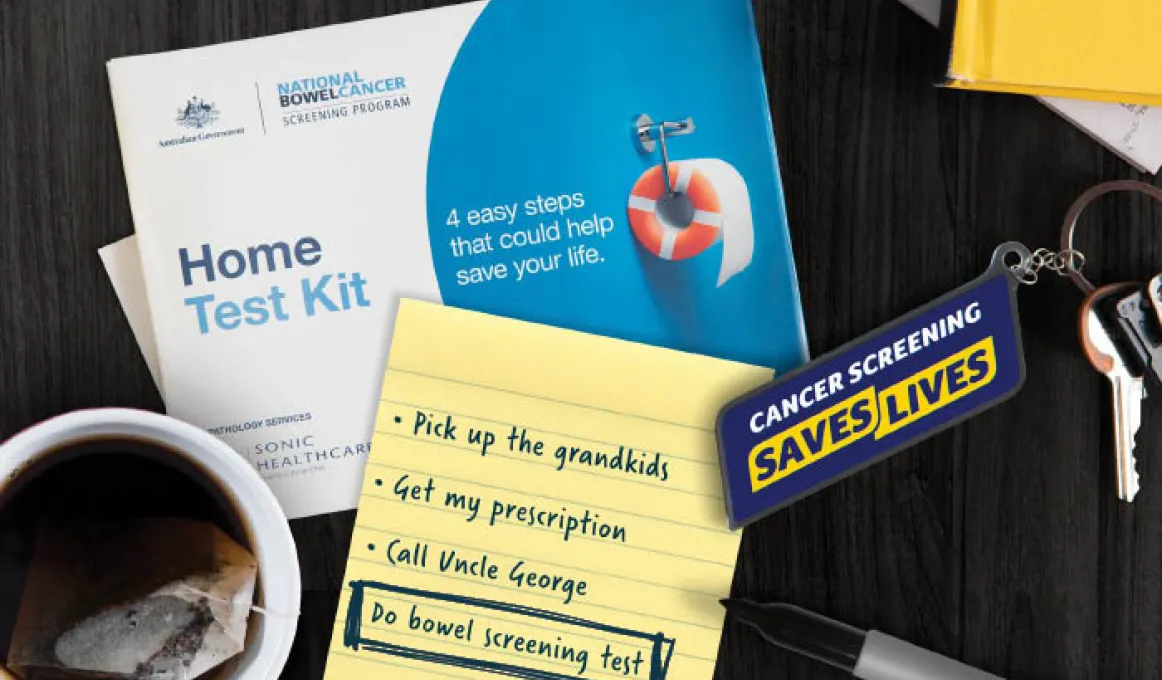Indigenous doctors urge communities to put cancer screening at the top of their to do list

Dr Joel Wenitong and Dr Marilyn Clarke are partnering with Cancer Council and the Australian Government to encourage Aboriginal and Torres Strait Islander communities to prioritise cancer screening.
Dr Joel Wenitong and Dr Marilyn Clarke are partnering with Cancer Council and the Australian Government to encourage Aboriginal and Torres Strait Islander communities to prioritise cancer screening.
The national Aboriginal and Torres Strait Islander campaign, Cancer Screening Saves Lives, launched this week to help increase the number of people participating in national cancer screening programs. The campaign details the benefits of participating in the national cervical, breast and bowel screening programs.
Dr Marilyn Clarke said the need for the campaign was clear.
“Since COVID-19 began, our communities and health workers have worked to keep communities safe and have been doing an incredible job. The hard reality however, is that cancer is still highly prevalent in our communities, so we have to remain focussed on keeping strong and healthy on all fronts. That’s why cancer screening is so critical, even during a pandemic.”
Dr Joel Wenitong explained that the screening programs were designed to detect early signs, before symptoms appear and even before cancer occurs. He noted how important it was for people to encourage others in their communities to participate in screening and highlight its importance.
“We are urging our community members who are eligible for cancer screening programs to put screening back on their to do lists. We know the vital role our health workers and community members play in sharing critical information and taking time to talk about the benefits of cancer screening.
“Screening can detect cancers early, either by detecting any early precancerous signs to stop the cancer developing in the first place or by detecting cancers when they are small. This means treatment options and survival prospects are better.
“We are asking our communities to make sure they participate in screening, but also to encourage others to do the same. We can stay strong and healthy together.”
The National Bowel Cancer Screening Program sends free bowel screening kits to Australians aged 50-74 every two years. The kits are completed at home and returned via post.
Cervical screening is recommended for people with a cervix aged between 25-74, who have ever been sexually active.
In 2017, the National Cervical Screening Program transitioned to the new cervical screening test, which can detect the presence of the human papillomavirus (HPV) before abnormalities develop. Patients who have a negative HPV test result now only need to be screened every five years. Patients who haven’t had a cervical screening test since December 2017, are now overdue. Self-collection of a vaginal sample is also available for women aged 30 years of age or older, who are either more than two years overdue for screening or have never screened. Self-collection is still accessed through a healthcare provider in general practice and is a safe and effective option for eligible women which also allows you the opportunity for privacy.
The integrated Aboriginal and Torres Strait Islander campaign includes radio, digital and social media advertising and will run from this week throughout spring.
Find out more
For more information about the campaign visit Early detection and screening for Aboriginal and Torres Strait Islanders.